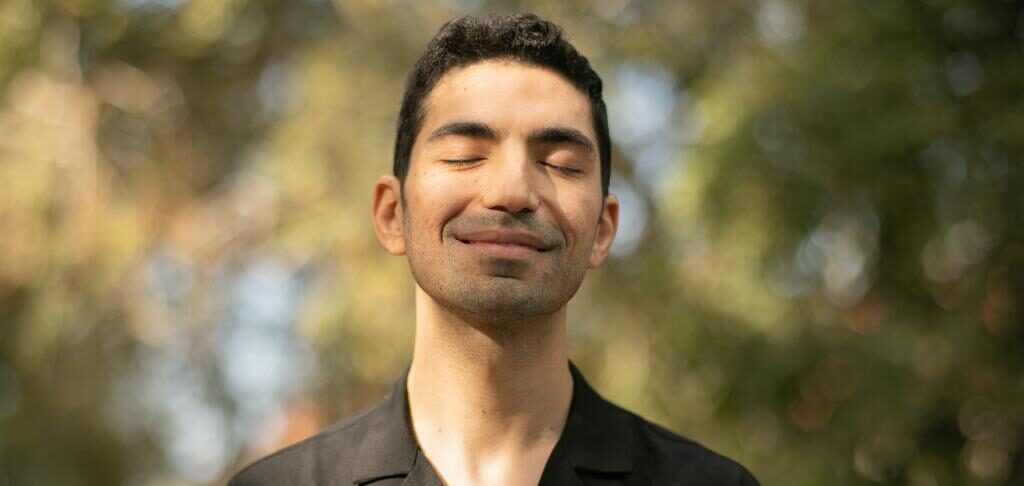In exploring human spirituality, we encounter two timeless avenues through which diverse cultures have sought connections with the divine. One of them is the religious ecstasy and second is the ceremonial use of psychoactive substances. These methods, deeply embedded in human tradition, serve as gateways to transcending the ordinary, offering profound insights into our universal yearnings for spiritual experiences.
Spiritual Ecstasy – It’s Global
Spiritual ecstasy, a profound state of spiritual awakening, transcends cultural boundaries. It manifests across various religious traditions, each with its unique expressions and theological interpretations.

- Christian Mysticism: In Christianity, spiritual ecstasy often involves an intense, transformative experience of union with the Divine. Mystics like Teresa of Ávila and John of the Cross describe these moments as overwhelming encounters with God’s presence, where the soul transcends the physical realm. These experiences are marked by visions, emotional ecstasy, and a deep sense of peace, significantly influencing Christian thought with their emphasis on the transformative power of divine love.
- Sufism: The mystical branch of Islam, Sufism, involves seekers engaging in dhikr—repeated invocations of Allah’s name—to induce states of spiritual ecstasy. This practice is believed to lead to direct personal experiences of divine love and knowledge. The poetry of Rumi, a prominent Sufi mystic, eloquently describes these ecstatic states as a passionate union with the beloved, illustrating the depth of Sufi spiritual experiences.
- Hindu Bhakti Movement: This devotional tradition within Hinduism emphasizes a personal connection with a deity through prayer, song, and dance. This often leads to ecstatic emotional responses such as tears and trembling, seen as direct interactions with the divine.
- Voodoo: In Voodoo, particularly prevalent in Haiti and parts of the American South, spiritual ecstasy is achieved during rituals where participants believe spirits possess them. This possession, facilitated by drumming and dancing, is considered a direct communication with the divine. It often results in trance states that are both healing and insightful.
- Shamanism: Various shamanistic traditions around the world use trance states to communicate with the spirit world. Through rituals involving drumming, dancing, and sometimes the use of natural hallucinogens, shamans journey to other realms, providing services like healing and divination to their communities.
These diverse practices underscore the universal appeal of spiritual ecstasy, illustrating a common human inclination towards experiences that transcend the mundane.
Mind Altering Drugs – It’s Global
Throughout history, many cultures have embraced the use of psychoactive substances as integral to achieving elevated states of consciousness during religious rituals and communal ceremonies.

- Shamanic Traditions in the Americas: Native American tribes, for example, have historically used peyote, a cactus known for its mescaline content, in spiritual practices. The psychoactive effects are considered to facilitate communication with spiritual entities, offering guidance and insights crucial for community welfare.
- Ayahuasca in Amazonian Cultures: In the Amazon basin, Ayahuasca—a brew made from the Banisteriopsis caapi vine—is used for spiritual and healing purposes. The vivid visions induced by Ayahuasca are regarded as divine revelations, providing wisdom and insights that are seen as transformative, aiding in personal and communal growth.
- Ancient Greek Mysteries: The Eleusinian Mysteries, an annual secretive ritual in ancient Greece, likely involved kykeon, a potion containing psychoactive elements. Participants reportedly experienced life-changing visions that provided comfort regarding death and a deeper connection to the divine.
- African Rituals and Iboga: In regions like Gabon, the Bwiti religion involves the consumption of Iboga, a plant containing ibogaine, during spiritual practices. These rituals, centred around profound encounters with ancestors and the spirit world, are essential for the spiritual and social fabric of the community.
- Hindu Sadhus and Cannabis: In India, sadhus use cannabis to reach states conducive to meditation and spiritual communion. During festivals dedicated to Shiva, the consumption of cannabis in the form of bhang is considered a sacred act aimed at enhancing spiritual insights.
These practices highlight how the traditional use of psychoactive substances is deeply ritualised and culturally integrated, ensuring that their use is respected and valued as a meaningful part of spiritual life rather than mere escapism.
The Search for Transcendence – It’s Global
The enduring human fascination with spiritual ecstasy and psychoactive substances illustrates our intrinsic desire to explore consciousness and connect with something greater than ourselves. Whether through spontaneous spiritual experiences or intentional ingestion of psychoactive substances, these practices offer a window into the diverse ways cultures seek to understand and engage with the divine.
Both spiritual ecstasy and ritualised drug use not only provide personal and communal transformations but also reveal the depth of our spiritual inquiries and existential searches. These transcendent experiences, achieved through faith or pharmacology, express a profound and universal yearning to bridge the gap between the human and the divine.
In essence, the widespread pursuit of these extraordinary states across various cultures and epochs underscores a key aspect of human nature: our quest for deeper meaning and connection. As we continue to explore these ancient yet ever-relevant practices, they offer invaluable insights into the human spirit, reflecting a shared heritage of seeking spiritual depth and greater understanding of our place in the cosmos. Through these profound encounters, humanity demonstrates its enduring quest to reach beyond the everyday and touch the divine, showcasing the diverse paths we have forged to transcend the ordinary and embrace the extraordinary.




